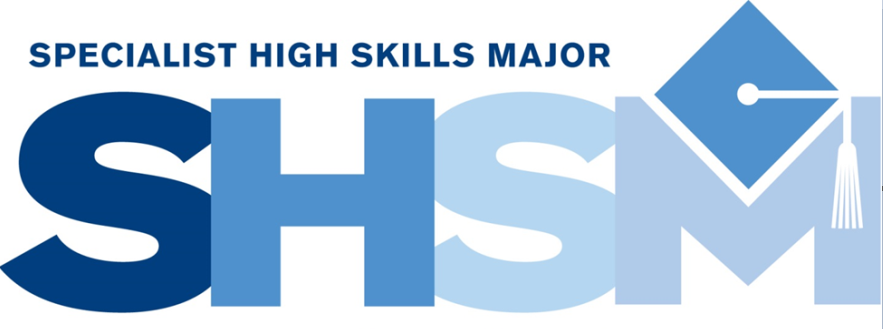
Specialist High Skills Major (SHSM) offers you an opportunity to complete your Ontario Secondary School Diploma (OSSD) while focusing on a specific economic sector and supporting transitions to college, apprenticeship, university and the workplace. Sixteen economic sectors are represented and all boards must have Ministry approval in order to offer a SHSM.
Every SHSM must include the following five components, which are outlined in detail in ministry-approved frameworks developed for each area of specialization:
A package of 8-10 required credits (the majority earned in grade 11 and 12 courses) that constitute a pathway to one of four possible destinations: apprenticeship training, college, university, or the workplace.
The package must include:
- Four credits (called the "major" credits) for courses that provide knowledge and skills closely related to the particular sector of specialization, which are specified in each of the frameworks
- Three or four additional credits for courses in English and other relevant disciplines (e.g. science, mathematics, or business studies), as specified in each of the frameworks, which include units of study that are customized to the particular sector. Some credits (e.g. English) may be used to meet compulsory credit requirements for the OSSD
- Two cooperative education credits, which may be used to meet two of the 18 compulsory credit requirements for the OSSD.
- Compulsory certifications, which are identified in each SHSM framework, including first aid and CPR qualifications.
- Experiential learning through job shadowing, work experience, and a minimum of two credits earned through cooperative education.
- A Sector Partnered Contextualized Component (SPCC) including one of the following options: Innovation, Creativity, and Entrepreneurship (ICE) training; sector-delivered contextualized coding; or, sector-delivered mathematical literacy. The SPCC will require approximately six hours to complete.
- "Reach ahead" opportunities, which allow students to experience learning in their intended post-secondary destination and which can range from a day of attendance at a college, a university, a workplace experience or to the completion of a dual credit.